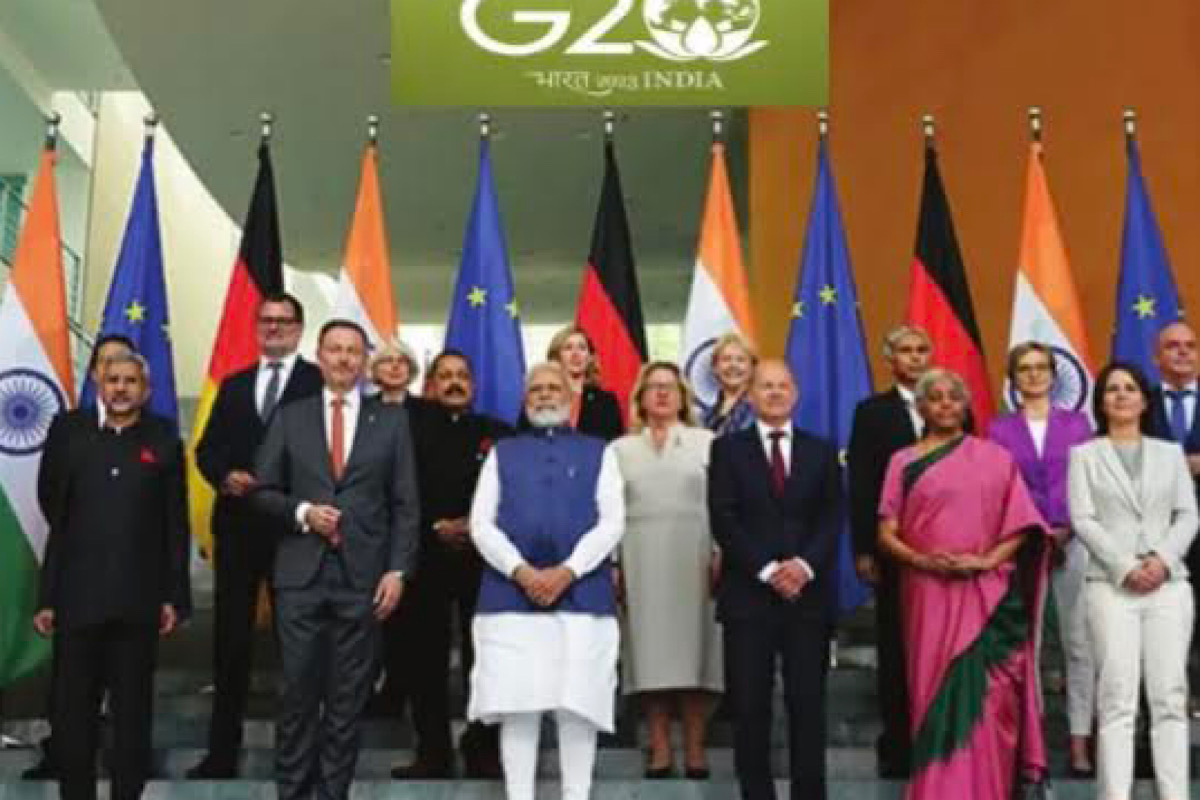As the world gingerly pulled out of the Covid crisis in late 2021, it soon found itself hurtling downwards towards another calamity ~ this time precipitated by the breakout of a man-made crisis in Ukraine in February 2022. The conflict has since already earned for itself the dubious distinction of being the longest prevailing war in recent decades.
That such a distortion occurred during the 75th year of the founding of the UN, is immensely disturbing and an ominous warning of the failing clout of contemporary multilateralism. Which is not to say that the rumblings of things to come had not started manifesting earlier.
Advertisement
As Prof. Jason Hickel, emphasized in his bestseller, ‘The Divide’ a few years ago and the World Inequality Lab, Paris reiterated in its Inequality Report of 2022, there has been a steep rise in the Global Economic Divide during recent years. Oxfam’s Briefing Paper of January 2022 highlights that during Covid, a billionaire was created every 26 hours. Ironically, this transpired during a time when 200 million persons were thrown off into conditions of unemployment and abject poverty.
Further it happened when innumerable students in poor nations had to forgo or curtail their studies owing to their not having access to online educational facilities.
Not to forget of course, the thousands in the Global South who lost their lives either because of their not having access to or not being able to afford Covid vaccines. Or the massive escalation of public debt in developing countries and the setback to their efforts for establishing at least a minimalistic infrastructure for realizing UNSDGs by 2030.
But why only speak of the Global South? Even the North has been unable to live up to its commitment on providing Climate Finance-related funds to the tune of US$100 billion every year until 2020, as agreed at the COP 15 talks at Copenhagen in 2009 and reiterated recently at COP 27 at Sharm-el-Sheikh in November 2022.
Multilateral Banking Institutions (MDBs) do offer some respite. But as evident during negotiations conducted in the context of Argentina, Sri Lanka and Pakistan, these can be longdrawn and arduous.
It is in the backdrop of these daunting challenges that the New Delhi G20 will be conducting its parleys. It is true that the worsening geopolitical divide because of countries aligning with the Ukraine or the Russian cause severely erodes multilateral, decision-making processes.
China’s serious bilateral differences with India at the present juncture also make India’s position as a host country very difficult. And yet, the G20 remains the world’s most influential and grouping of developed and developing nations. Between its 20 members, it commands a share of 75 per cent of the world’s trade, 85 per cent of its GDP and twothirds of its population.
If there is any possibility of solutions being evolved for contemporary global issues, it is only this group which can smoothen the ruffled, global political and economic feathers.
The North’s MNCs-based model of doing business is integrally dependent on the populous markets of the South for sale of its goods and services. But what if the South were to fall into chilling penury and poverty? Who would buy the North’s wares? Long-term prosperity in the North can only endure if there is a semblance of economic growth in the South.
If there is one common thread which runs through most of the critical exigencies stressed above, it is the utter paucity of funds available with the South. Unless this paramount constraint is resolved, large youth populations in the South may not be willing to wait it out too long.
The risks posed to the current world order in case disturbances fanned by frustrated youth communities quickly spread across digitally-connected, sympathetic, counterpart stakeholders in affected countries need not be emphasized.
The Arab Spring is a stark and important reminder of the disruption caused by social disturbances in recent times.
During the run-up to the G20, India has vigorously and diligently tried to forge a spirit of unity of purpose for realizing common objectives of prosperity and well-being for all. Its expertise, credentials and acceptability among varied G20 stakeholders can now be used to press for radical change and innovation in tackling the South’s woes.
The vision documents for establishing the G20 stress its seminal role in resetting the current international financial and monetary architecture.
This being G20’s foundational purpose, it would not be out of place for India to now float the idea of establishing a G20 Multilateral Development Fund, which will ‘fast track’ critical funding for developmental, disaster-related or other focused, futuristic, South-oriented welfare programmes and which effectively overcomes, the difficulties encountered by the South in finding relief from the Bretton Woods institutions.
The need of the hour is to quickly announce and implement tangible projects e.g. bridge the Technological and Digital Divide prevailing in the South; fund thousands of scholarships for talented students for the South; skill up Southern populations; upgrade industrial and science and technology processes and execute other such initiatives so that developing nations can tangibly contribute to global supply chains. Inequitable economics and finance have been long-standing sore points for the South, as highlighted during the South’s Buenos Aires Plan of Action talks in 1978 and reiterated during their BAPA+40 exchanges in March 2019.
At the core of the present, geo-political divide lie deep, subterranean, economic and financial fault-lines. Bringing them on to centre stage for resolving their distortions, will be a huge win for Indian diplomacy.
It will also be an overdue endorsement of India’s emerging, towering role and stature in the comity of nations. Further, it will restore faith and confidence in current, failing multilateral processes and help in salvaging the crumbling World Order of today.
(The writer, a retired Indian Foreign Service officer, teaches at O P Jindal Global University)











